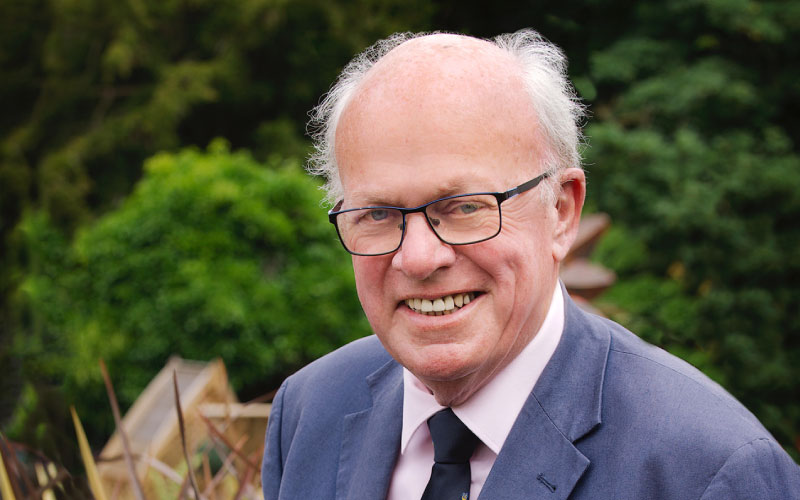
A BALI Pioneer: Peter Jennins on 50 years of the Association
Peter Jennins OBE is a BALI pioneer.
Alongside his forward-thinking peers, he raised the profile of the landscaping industry – especially through the hugely successful Garden Festival programme. And has played a key role in the evolution of the Association over the last 50 years.
Peter Jennins didn’t start out as a landscaper, but, aged 21, left his job as a quantity surveyor and started work at landscaping firm E H Williams Environment, based near Liverpool.
In the first year, Peter helped increase turnover in the business by 40%. He’d made the right career choice. Peter attributes his early success to boss Gerry Williams who was his ‘first great influence’ in the industry.
Andrew Legg encouraged Peter to join the British Association of Landscape Industries 49 years ago. His first regional meeting will forever be remembered - his wife Hilary had gone into labour when he got home!
Jeffrey Bernhard, the Associations founding Chairman, realised the industry wasn’t getting sufficient recognition.
Peter said, “Jeffrey is a charming, charismatic man who did so much. He spent thousands of hours on Association work, was a tremendous public servant and was recognised with an OBE for it.”
In the mid-70s, BALI’s first headquarters was a one-room office in Bingley, West Yorkshire. Peter said the main priorities were then (as now!) to raise standards and the industry’s profile.
He was National Chairman from 1978-1979 when collaboration and networking were at the heart of the Association.
Council meetings were held monthly in London and a three-day annual conference was launched which included the introduction of the National Landscape Awards. All past Chairmen met once a year with the Chief Executive, current Chair and Vice-Chair to be
updated on the Associations progress and share ideas for the future.
Peter was inspired by the Bundesgarten shows in Germany that regenerated inner cities post war. He visited a show in Bonn with Norman Wilson, BALI’s Vice Chairman at the time, representing BALI at ELCA (European Landscape Contractors Association). In 1978 he progressed the idea of Garden Festivals in the UK – it became a career highlight.

Following meetings held with government ministers, it was agreed to undertake
feasibility studies. These studies indicated that it would take ten years to construct a garden festival, but in 1981 Michael Heseltine, the Minister for Merseyside announced that an International Garden Festival was to come to Liverpool. The idea was to promote tourism and the economy - following some tough years for the city.
In 1984 Liverpool’s International Garden Festival was launched and for six months it attracted millions of visitors from across the country and beyond.
Other National Garden Festivals followed; Stoke-on-Trent in 1986, Glasgow in 1988, Gateshead in 1990 and Ebbw Vale in 1992. Liverpool was the trailblazer festival
and it was through Peter and the Association that the Garden Festival Programme emerged.
Each place they were held benefited from positive promotion. Funded by the Government, the festivals showcased landscaping and were enjoyed by millions of visitors.
Peter said:
“The Garden Festivals raised the public profile of landscapers beyond all recognition. Nothing had ever been done on this scale before and they prompted increased investment into areas. In Stoke-on-Trent the Garden Festival, which had been a derelict pottery waste site was subsequently redeveloped into shops, offices, hotels, leisure facilities, new housing, and a marina, leaving a lasting legacy behind.”
Peter’s work did not go unnoticed; in 2012 he was awarded an OBE for services to charity and to the landscape industry in the North-West. “I was humbled but proud of the recognition.”
Peter is currently Chairman of the trustees of the BALI Chalk Fund, which aims to help the younger generation coming into the industry. “It was a fortunate career choice, but I’ve never regretted it. I’ve made lifelong friends throughout a very interesting and, at times, exciting career; I can’t think of any other career choice where I could have made such a positive difference to the environment through my work. There’s not many that can claim that as part of their job, can they?”
